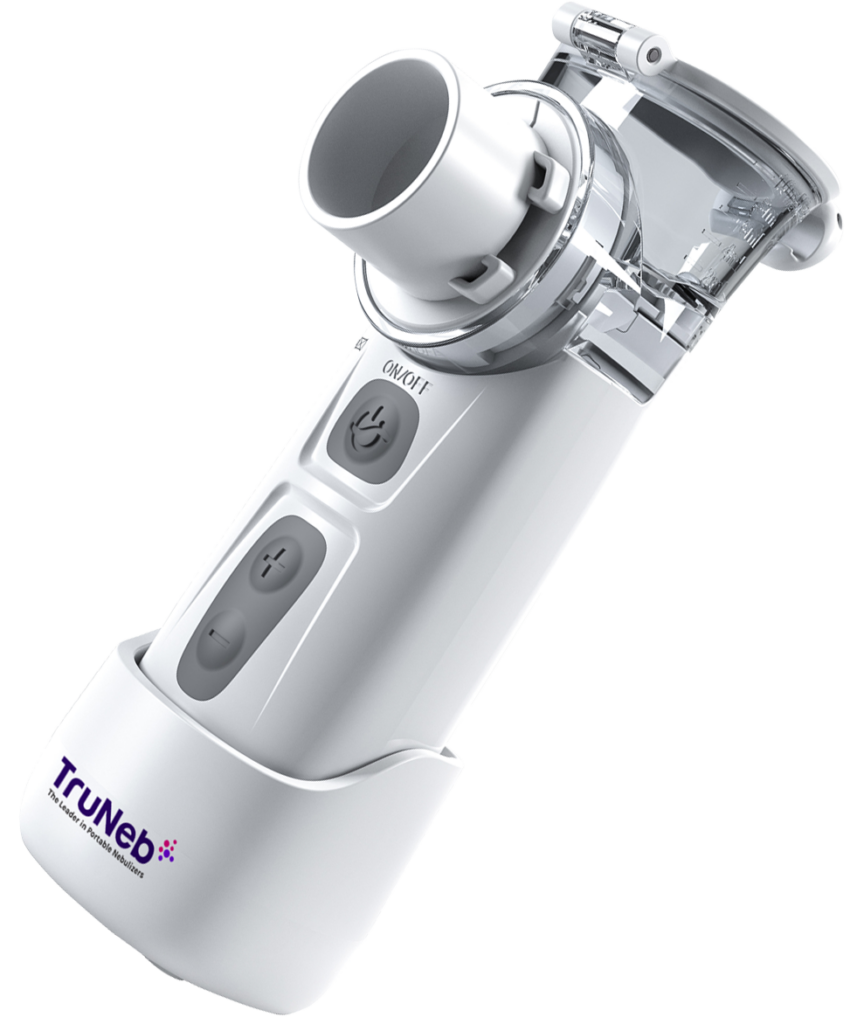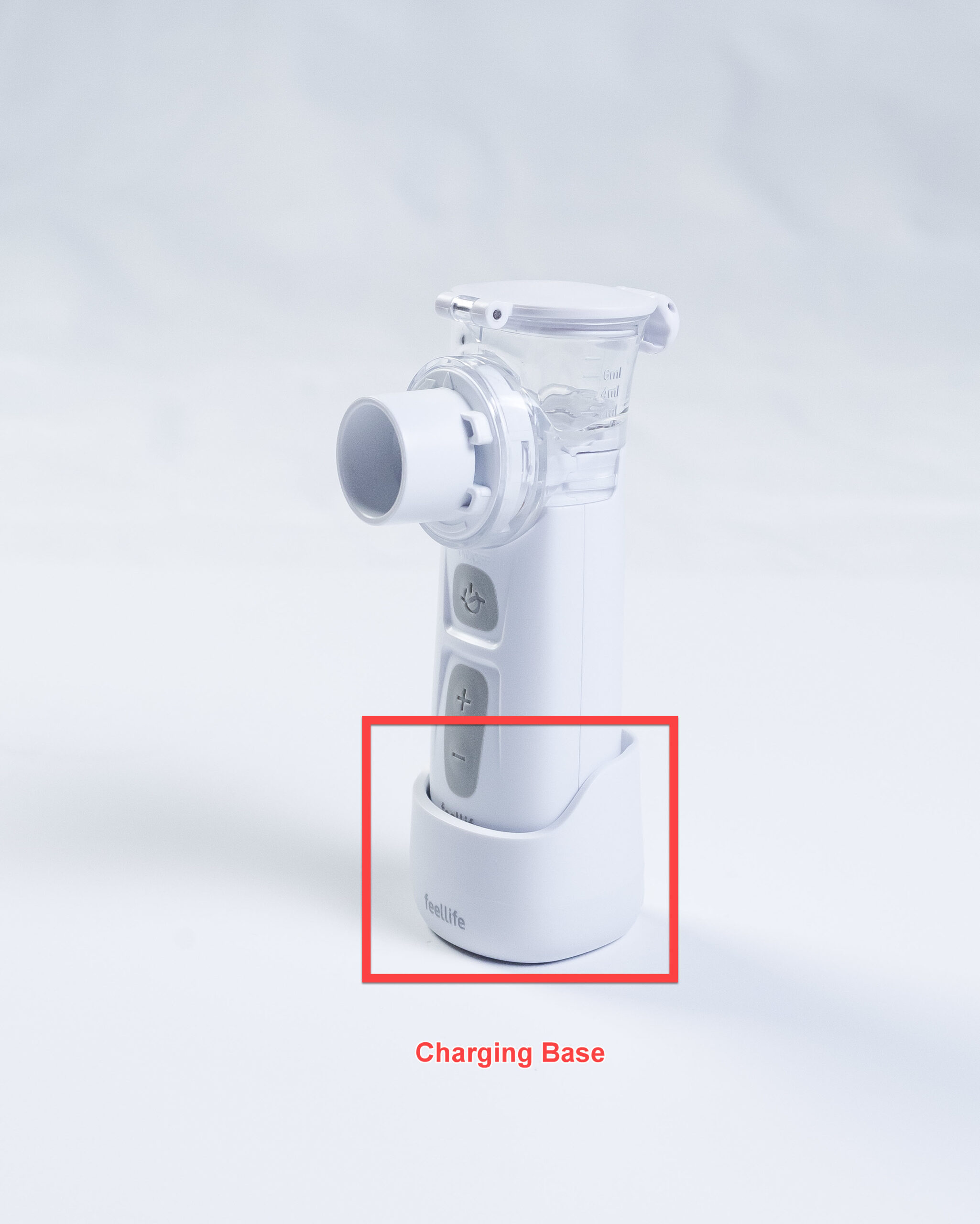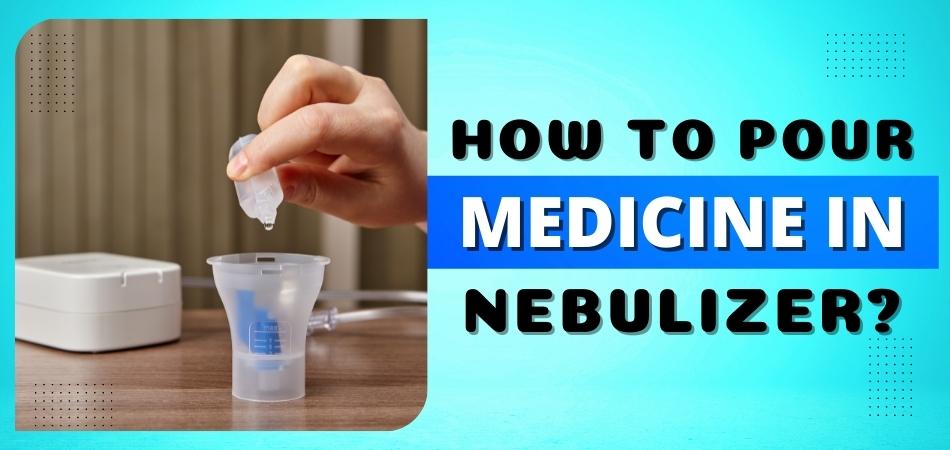If you have been diagnosed with chronic obstructive pulmonary disease (COPD), your doctor may have prescribed an inhaler to help you manage your symptoms.
There are two main types of COPD inhalers: metered dose inhalers (MDIs) and nebulizers. MDIs deliver a measured amount of medication to the lungs in the form of a spray, while nebulizers turn liquid medication into a fine mist that is inhaled through a mouthpiece or mask.
So, which type of inhaler is better for COPD?
Dose Inhalers Treat COPD Better Than Nebulizers?
If you or a loved one has COPD, you may be wondering if a nebulizer is better than an inhaler. Here’s what you need to know. Inhalers and nebulizers both deliver medication to the lungs, but they do so in different ways.
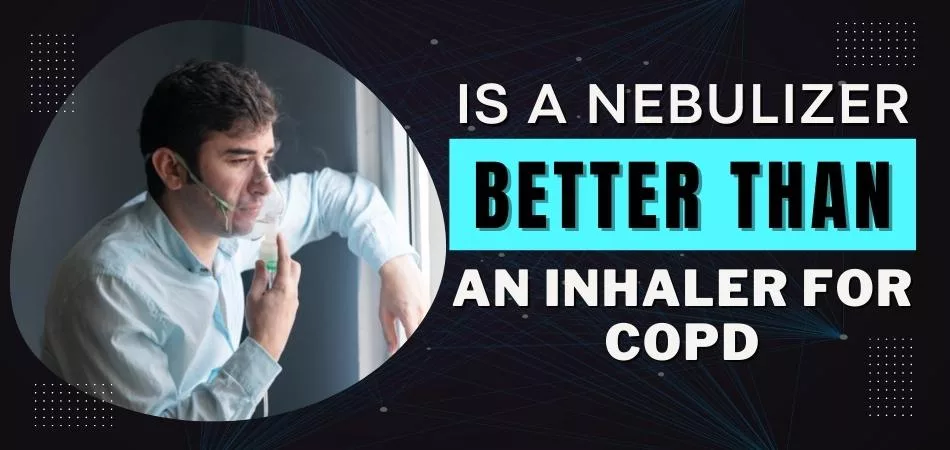
An inhaler delivers the medication in a fine mist that can be inhaled directly into the lungs. A nebulizer turns the medication into a fine mist that is then breathed in using a mouthpiece or mask. So, which is better?
It really depends on the individual. Some people find that they can get their medication more effectively with an inhaler, while others find that a nebulizer works better for them. There are even some people who use both depending on the situation.
If you’re not sure which is right for you, talk to your doctor or COPD specialist. They can help you figure out which option will work best for your specific needs and situation.
What is the Best Nebulizer for Copd?
If you are looking for the best nebulizer for COPD, you may want to consider the TruNeb™. This device is specifically designed to help those with COPD breathe easier.
It is small and lightweight, making it easy to take with you on the go. The MicroAir also comes with a carrying case, so you can keep it close at hand when you need it.
TruNeb™ is an FDA-registered medical device that provides a convenient, affordable, and effective way to treat bronchial conditions such as COPD. TruNeb™ is a handheld nebulizer that uses a unique TruPulse™ Nebulization Technology to deliver medication directly to the lungs in a precise and targeted manner.
The TruPulse™ technology produces a stream of compressed air that atomizes medication into a fine mist. This mist is then inhaled through a mouthpiece or mask, delivering the medication directly to the lungs where it can be most effective.
TruNeb™ is backed by clinical studies and has been proven to be more effective than traditional nebulizers in delivering medication to the lungs. In addition, TruNeb™ is much quieter than traditional nebulizers, making it more comfortable for patients to use.
TruNeb™ is an ideal choice for treating COPD and other respiratory conditions. For more information about TruNeb™ and its unique TruPulse™ Nebulization Technology, please visit our website or contact our customer service team.
What Do You Put in a Nebulizer for COPD?
If you have COPD, your doctor may prescribe a nebulizer. This is a machine that turns liquid medicine into a fine mist that you can inhale through a mouthpiece or mask. The medicine helps open up your airways so you can breathe better.
There are different types of COPD nebulizers and each one uses a different medication. It’s important to use the nebulizer that your doctor prescribed and to follow their instructions on how to use it correctly. Here is some general information about using a nebulizer for COPD:
The most common type of COPD nebulizer is an air compressor nebulizer. This type of nebulizer transforms liquid medication into a fine mist using compressed air. You will need an electrical outlet to operate this type of nebulizer.
-Air compressor nebules typically come with everything you need to get started, including tubing, masks, and mouthpieces. If not, make sure to ask your pharmacist which accessories you will need to purchase separately.
Some people prefer using a battery-operated portable nebulizer rather than an air compressor nebule because it is more convenient (i.e., no cords or electricity needed).
These work similarly by turning liquid medication into a fine mist that can be inhaled through a mask or mouthpiece; however, they usually require pre-charging before use. Nebulizers come in different sizes choose one based on how often you think you will need to use it per day/week as well as its portability features (if applicable).
When putting together your COPD Nebulization treatment plan, always start with speaking with your physician first about what medications they recommend for your individual case this is critical in order to ensure the safety and effectiveness of treatments!
How Often to Use Nebulizer for COPD?
If you have COPD, you may need to use a nebulizer. This is a machine that helps you breathe in the medicine. You might use it when your COPD is bad and you cannot breathe well.
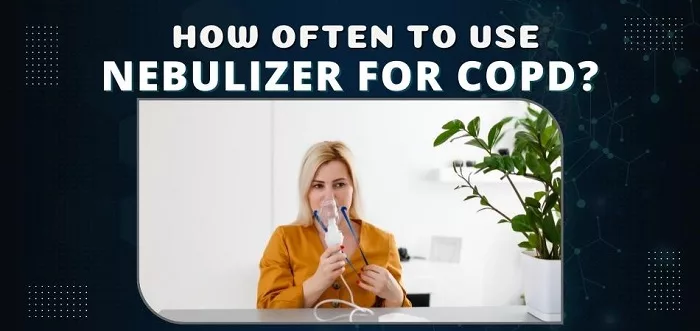
Most people with COPD will use their nebulizer 2-3 times per day. Some people may need to use it more often if they are having a lot of trouble breathing. If you are using your nebulizer more than 3 times per day, you should talk to your doctor.
Using a nebulizer is simple. First, you will need to gather the supplies which include the machine, tubing, mouthpiece or mask, and medication cup. Make sure everything is clean before beginning.
Attach the tubing to the machine and then attach the mouthpiece or mask. Turn on the machine and wait for it to start making a mist. Put the medication into the cup and hold it up to the mouthpiece or mask.
Breathe in slowly and deeply until all of the medication is gone from the cup (this usually takes 10-15 minutes). After using your nebulizer, detach all of the pieces and wash them with soap and water (if directed by your manufacturer).
Nebulizers Vs Inhalers And the Winner is-
Nebulizers and inhalers are two common devices used to deliver medication to the lungs. Both have their pros and cons, so it’s important to understand the difference between the two before making a decision about which one is right for you.
Nebulizers are large, electric devices that use compressed air to turn liquid medication into a fine mist that can be inhaled. They require a power source, so they’re not always convenient to use on the go.
However, they’re very effective at delivering medication to the lungs, and they’re often used for treatments that require a high dose of medication or for people who have difficulty using an inhaler correctly. Inhalers are small, portable devices that deliver medication in the aerosolized form directly to the lungs with each breath.
They’re easy to use and don’t require a power source, making them ideal for people who need to take their medication with them when they travel. Inhalers are less effective than nebulizers at delivering medication to the lungs, but they’re still an effective option for most people.
What is the Best Medicine for Copd?
There is no one-size-fits-all answer to the question of what is the best medicine for COPD. The severity of your condition, as well as other factors such as your age and overall health, will all play a role in determining which medication or combination of medications is right for you.
However, there are a few general categories of drugs that are commonly used to treat COPD, and within each category, there are a variety of options to choose from.
The first category of drugs used to treat COPD is bronchodilators. These drugs work by relaxing the muscles around the airways, making it easier to breathe. There are two main types of bronchodilators: short-acting and long-acting.
Short-acting bronchodilators provide quick relief from symptoms but only last for a few hours. Long-acting bronchodilators provide longer relief but need to be taken on a regular basis. Some common short-acting bronchodilators include albuterol (Proventil, Ventolin) and ipratropium (Atrovent).
Common long-acting bronchodilators include tiotropium (Spiriva), salmeterol (Serevent), and formoterol (Foradil). The second category of drugs used to treat COPD is corticosteroids. These drugs help reduce inflammation in the lungs, making it easier to breathe.
Corticosteroids can be taken orally (in pill form) or inhaled (as an aerosol inhaler). Common oral corticosteroids include prednisone and methylprednisolone. Commonly inhaled corticosteroids include fluticasone (Flovent), budesonide (Pulmicort), and mometasone furoate monohydrate (Asmanex).
Finally, some patients with COPD may also require oxygen therapy. This involves using special equipment to deliver concentrated oxygen directly into your lungs through a mask or nasal cannula. Oxygen therapy can help improve your quality of life by relieving symptoms and helping you stay more active.
What Stage of COPD Requires a Nebulizer?
COPD, or chronic obstructive pulmonary disease, is a progressive lung disease that makes it difficult to breathe. The main symptom of COPD is shortness of breath, which can worsen over time. Some people with COPD may also experience wheezing, chest tightness, and coughing.
There are four stages of COPD, each with its own set of symptoms and treatment options. People with mild COPD may only experience occasional shortness of breath and can often manage their symptoms with lifestyle changes and medications.
Those with more severe COPD may need to use supplemental oxygen or a nebulizer to help them breathe.
A nebulizer is a device that delivers medication directly to the lungs in the form of a fine mist. This can be helpful for people with COPD who have difficulty using an inhaler or who need higher doses of medication than an inhaler can provide.
Nebulizers are usually used on a short-term basis when symptoms are particularly bad or when someone is first starting on new medications.
If you have been diagnosed with COPD, talk to your doctor about whether a nebulizer might be right for you.
When Should You Use a Nebulizer Instead of an Inhaler?
If you suffer from asthma, allergies, or other respiratory conditions, you may have been prescribed a portable nebulizer. Nebulizers are devices that turn liquid medication into a fine mist that can be inhaled.
This can be an effective way to deliver medication to the lungs and bronchial tubes. But how do you know when to use a nebulizer instead of an inhaler?
In general, nebulizers are most effective for treating severe asthma attacks or exacerbations. Inhalers can also be used for these purposes, but they often don’t deliver the same amount of medication to the lungs.
Nebulizers are also a good choice for young children or anyone who has difficulty using an inhaler properly.
There are some drawbacks to using a nebulizer, however. They can be bulky and difficult to carry around, and they require a power source (either batteries or an electrical outlet).
They also take longer to administer medication than inhalers. So if you’re having a mild asthma attack or exacerbation, an inhaler may be a better option.
If you’re not sure when to use a nebulizer vs. an inhaler, talk to your doctor or pharmacist. They can help you choose the right device for your needs and make sure you’re using it properly.
Are Nebulizers Good for COPD?
A nebulizer is a machine that turns liquid medication into a fine mist, which you then inhale through a mouthpiece or face mask.

Nebulizers are commonly used to treat respiratory conditions such as asthma and COPD. Nebulizers can be very effective in treating COPD because they allow the medication to directly enter the lungs.
This is especially beneficial for people who have difficulty using inhalers. Inhalers can be difficult to use correctly, and even when used correctly, only about 10% of the medication actually gets into the lungs. With a nebulizer, up to 90% of the medication gets delivered directly to the lungs.
Nebulizers are also convenient because they can be used at home without having to go to the hospital or doctor’s office. This is important for people with COPD who may have trouble leaving their homes due to shortness of breath or other symptoms.
If you are considering using a nebulizer to treat your COPD, talk to your doctor about whether it is right for you.
How Long Do You a Nebulizer While Having Copd?
If you have COPD, you may need to use a nebulizer. This device helps you breathe in medication. You may need to use it every day, or only when you have symptoms.
How long you use the nebulizer depends on your condition and the type of medication you’re using. Some treatments take 5 to 15 minutes. Others may take up to 30 minutes.
You may need to use a nebulizer several times a day if you have severe COPD. If your symptoms are milder, you may only need it once or twice a day.
Conclusion
Nebulizers are generally considered more effective than inhalers because they deliver a higher concentration of medication to the lungs. They also don’t require as much coordination to use, which can be important for people who have difficulty using their hands or coordinating their breathing.
However, nebulizers can be bulky and inconvenient to carry around, and they require a power source (either batteries or an electrical outlet).
Inhalers are smaller and more portable than nebulizers, and they don’t require a power source. They can be difficult to use properly, however, and may not deliver as high of a concentration of medication to the lungs.
